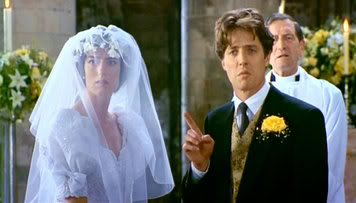Secrets of the Silver Screen: Showing
By Therese Walsh | February 9, 2006 |
 A script can’t be written like a novel. But can a novelist learn something by leaning over the shoulder of a screenwriter?
A script can’t be written like a novel. But can a novelist learn something by leaning over the shoulder of a screenwriter?
Clear character action/reaction and dialogue make up 99% of a good script; a character’s musings are nearly impossible to convey on the big screen. A novelist, on the other hand, can linger in character thought for pages—even chapters—on end. Bottom line: The screenwriter works on a girdled canvas. One book, The Complete Idiot’s Guide to Screenwriting points out an exception: books about mental patients often make compelling movies, because the characters’ thoughts can be shown in all their dishabille through a telling blend of mercurial action and overzealous speech (e.g. One Flew over the Cuckoo’s Nest, written by Ken Kesey and translated into a fabulous flick that earned five Academy Awards).
A successful screenplay works for many reasons, and one of them is that the writer is forced to show (not tell) almost everything. Over the next few weeks, I’m going to pull some dialogue from some of Hollywood’s championed children. Let’s see what we can learn from them.
Example #1 is from the Academy Award-nominated screenplay, Four Weddings and a Funeral. This is a blip from scene 95, set on the day of Charles’ wedding. He’s just exchanged greetings with his one true love, the recently married Carrie.
Carrie: You look lovely: but then, as you know, I always liked you dressed for weddings. And on time.
Charles: Yes. It’s an extraordinary thing. (Tiny pause) How’s Hamish?
Carrie: O he’s fine…I believe.
Charles: You believe?
Carrie: Yes. He wasn’t the man for me after all.
Charles: You left him?
Carrie: We left each other.
[He takes her aside.]
Charles: When?
Carrie: O, a few months now. March was hell. By April, it was sorted. That’s absolutely the last time I marry someone three times my age.
[Charles’ brother interrupts; it’s time for Charles to get ready for his own wedding.]
Charles: (distracted) Yes, yes… (then polite) Coming, good, good. (To Carrie) So why didn’t you get in touch then?
Carrie: I did think about it. I wanted to…but I was in a state…So anyway—I don’t want to keep you. I’ll see you afterwards.
Charles: Yes, fine, excellent.
[She begins to walk away]
Charles: Wait—
[He may be about to say something important—but no…]
Charles: I’ll show you to your seat…
[They head into the body of the church together…down the aisle…they reach the end of the pew—then, just before turning into it, they step aside]
Carrie: Our timing’s been really bad, hasn’t it?
Charles: It’s been bad.
Carrie: It’s been a disaster.
Charles: It has, as you say, been very bad indeed. God, it’s lovely to see you.
[Pause. Love. But they know the situation. She brightens.]
Carrie: Well, good luck. It’s pretty easy—just say ‘I do’ whenever anyone asks you a question.
[Charles midaisle with Matthew, asks him for a moment alone, then enters a side room in the church vestry. It is empy, very quiet and very ecclesiastical.]
Charles: Dear Lord—forgive me for what I am about to say in this magnificent place of worship. Bugger! Bugger! Bugger! Bugger! Bugger! Bugger!
[End of clip]
There you have it. We didn’t need a trip through Charles’ tripping brain waves to get that he is utterly tormented by Carrie’s news. He wants her. He doesn’t want to get married to the second-choice meringue waiting for him at the altar. The conflict is immediate, poignant, and the stakes are pretty darn high.
Am I suggesting novelists should write books sans introspection? Far from it; introspection is critical in a novel, and it’s what sets it apart from other mediums. But we should never settle for a lame line like “he was upset” when we can show that emotion through action and tight silver-screen dialogue. Go on and pick a scene from your own wip, then turn it on its ear. You may find yourself tipping your hat to Hollywood.










therese makes such an important point. the whole issue of showing not telling is esp. important to a novelist – and using screenwriting tools can help the writer avoid a classic writer’s mistake.